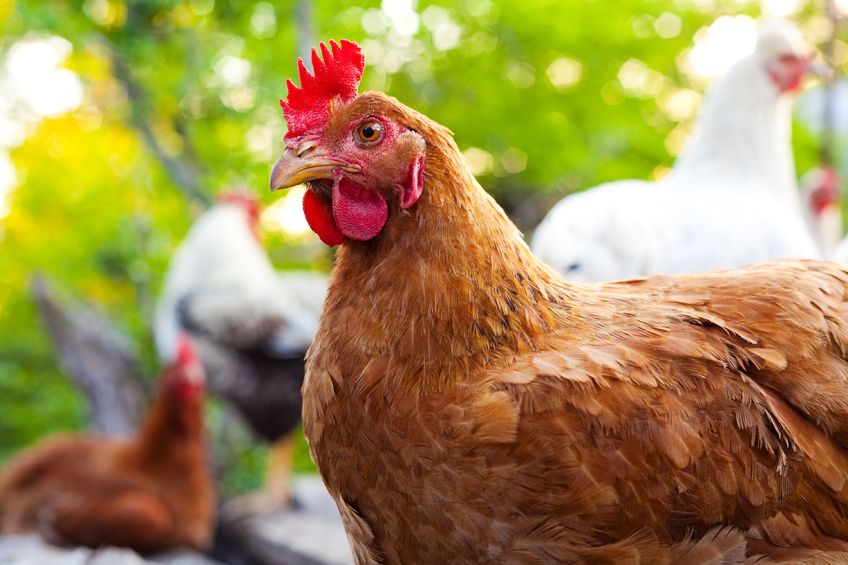
The Environment Agency has been urged to delay the introduction of changes to its charging regimes which could see significant increased costs for farming businesses.
A consultation document published by the Environment Agency last November proposes a number of several fold increases in application, variation, surrender and annual compliance permit fees.
The National Farmers' Union (NFU) says the increases are "disproportionately high".
Permit systems for poultry farming, landspreading of waste and sheep dip, on-farm anaerobic digestion and flood management would all be affected, the union states.
Mark Pope, NFU environment forum chairman, said the proposed huge increases within the charging regimes could have a "detrimental effect" on many farm businesses.
“Very little information has been provided on the basis for these charge changes so the onus is solely on the EA to demonstrate greater transparency and show that these costs are fair, proportionate and competitive,” Mr Pope explained.
'Inflated costs'
Mr Pope said the NFU are concerned that instead of investing in improving efficiency, productivity and new technology, farmers could see a lot of costs tied up with inflated administrative costs.
He continued: “We want farming to continue to improve its environmental performance, but these cost increases could be seen as a disincentive to improve management practices or limit the availability of management options in the future. The proposals could also put up barriers to new permit applicants.
“That’s why we want to see the Environment Agency delay the implementation until at least April 2019 to give us time to have further discussions with the EA to find ways of keeping our costs down.
“Additionally, a permit nearly always has additional and wider socio-economic and environmental benefits, such as flood mitigation, improvement in air and water quality and waste recovery, which provides wider public goods. This must be recognised when the EA calculates the costs of permit administration.”
'Easy as possible'
In its consultation document, the Environment Agency said it had "reviewed the way we regulate and the charges we set, to help us make it as easy as possible for businesses to do the right thing. We plan to ensure our charges are more closely linked to the cost of regulation."
It said in the document: "We are committed to making sure our charges are fair and transparent, and reflect the full cost of providing our chargeable services. Most of our charges have been fixed for at least six years or more and some don’t fully reflect the costs of providing the service."
The Environment Agency said that the changes would "significantly simplify the way customers work out their charges. Our current system is complicated and done in a different way for different regimes; the new one will be the same basis for everyone," it said.
They would "make sure people pay for the regulatory service they receive and this is what will cause the most change in costs for our charge payers."
The agency said the changes would reduce reliance on taxpayer funds currently needed to support regulatory work.
"We plan to ensure our charges are more closely linked to the cost of regulation," it said.
'Exorbitant'
However, British free range egg producers have warned that the new charges could devastate the industry.
Robert Gooch, chief executive of the British Free Range Egg Producers Association (BFREPA), has described proposed increases as "exorbitant" in his response to the consultation document.
He said: "Quoted rates of £100/hr are excessive and more cost-effective solutions can be found in the market. The time required in the calculations to complete tasks is opaque in the consultation and it is not clear that the agency has made any progress in making efficiencies in its work practices so as to keep costs down."
Mr Gooch said the BFREPA represented 500 free range and organic egg producers who together accounted for 75 per cent of the free range and organic eggs produced in the United Kingdom.
But he said the typical producer was just a small family business. Many of them just exceeded the permitting threshold.
Small family business
Mr Gooch added: "In the next few years, it would have been expected that most producers would have grown in scale to exceed 40,000 hens, but the level of charges proposed will deter this growth.
"It will lead to a dichotomy in the free range egg sector with the majority of farms limited to 40,000 hens on the one hand and a small minority of intensive farms with in excess of 100,000 hens," Mr Gooch explained.
He added: "In addition to impacting the growth of the free range sector as a whole through the new charges, all the country’s organic housing and over half of the housing systems used in free range production – known as flat decks or non-cage single tiers – would be non-compliant with the agency’s interpretation of the EU’s Best Available Techniques Emission levels.
"This means that any new shed registered after 21 February that takes a farm’s bird numbers to over 40,000 would make all the flat deck sheds on that farm non BAT compliant for an environmental permit."
